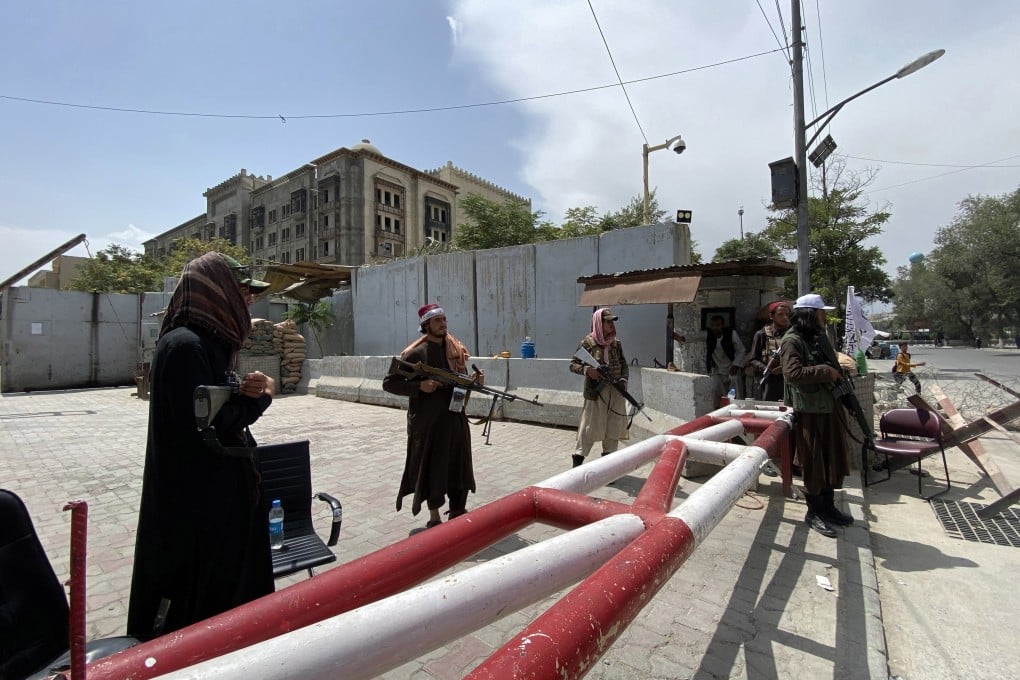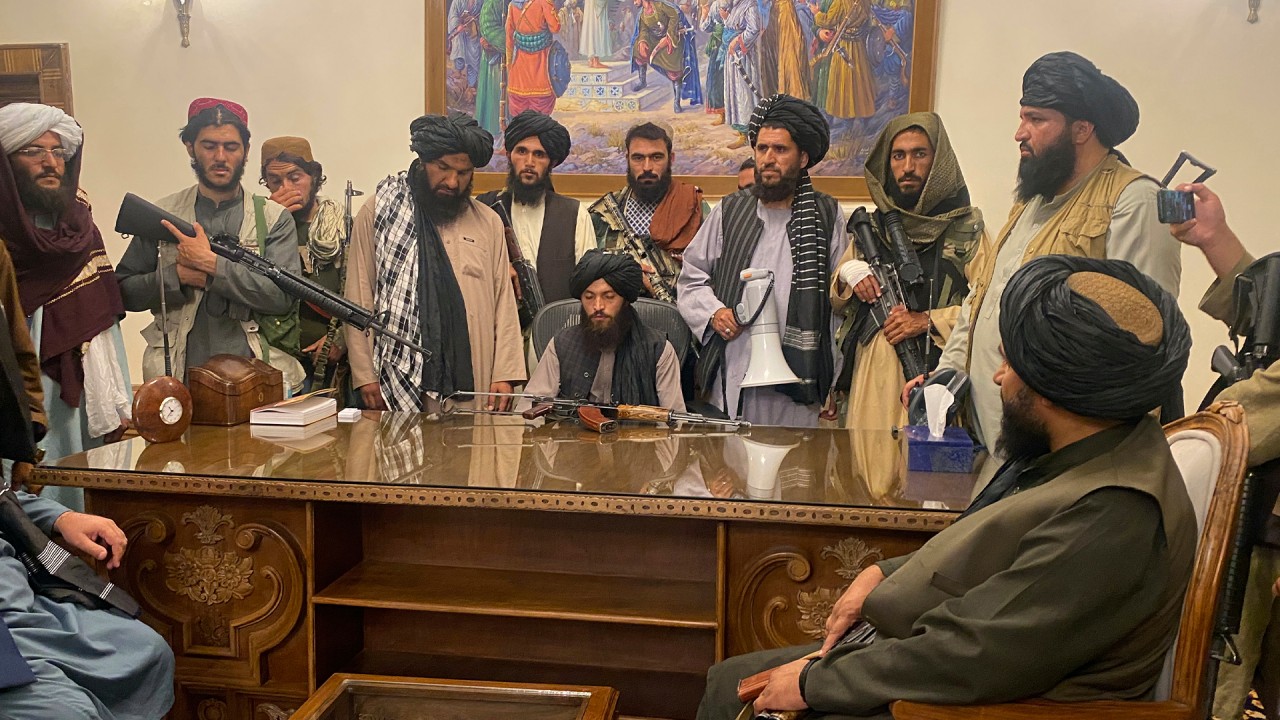Fall of Kabul sends big players US, China, Russia into diplomatic flurry over Afghan future
- China ready to work with US to ensure a ‘soft landing’ in Afghanistan, but says Washington would need to dial back the pressure on its strategic rival
- Concerns about Afghan projects and terrorism spilling over to Xinjiang may see Beijing pursue a stronger relationship with the Taliban, observers say

In a phone call with US Secretary of State Antony Blinken on Monday, China’s Foreign Minister Wang Yi said Beijing was ready to work with America to prevent Afghanistan from becoming a humanitarian disaster or a hotbed for terrorism, following the stunning collapse of the Afghan government on Monday as the Taliban took over the capital city and presidential palace within hours.

04:07
Taliban takes control of Afghan capital Kabul as President Ghani flees country
However, Wang said Washington needed to dial back the pressure on its greatest rival, according to the Chinese foreign ministry.
“China stands ready to have communication and dialogue with the United States to push for a soft landing of the Afghan issue,” he was quoted as saying. “However, the United States cannot, on the one hand, work hard to contain and suppress China and undermine China’s legitimate rights and interests, and, on the other hand, count on China’s support and cooperation.”
The two diplomats called on each other to play an important role in the transition process.

03:24
‘What do we do next?’: US military veteran who served in Afghanistan reacts to Taliban takeover
In a flurry of diplomatic phone calls, Blinken also discussed Afghanistan with his counterparts from Russia, Pakistan, India, the European Union, Nato, Turkey and Britain, while Wang agreed to step up communication and coordination on Afghanistan with Russian Foreign Minister Sergey Lavrov.